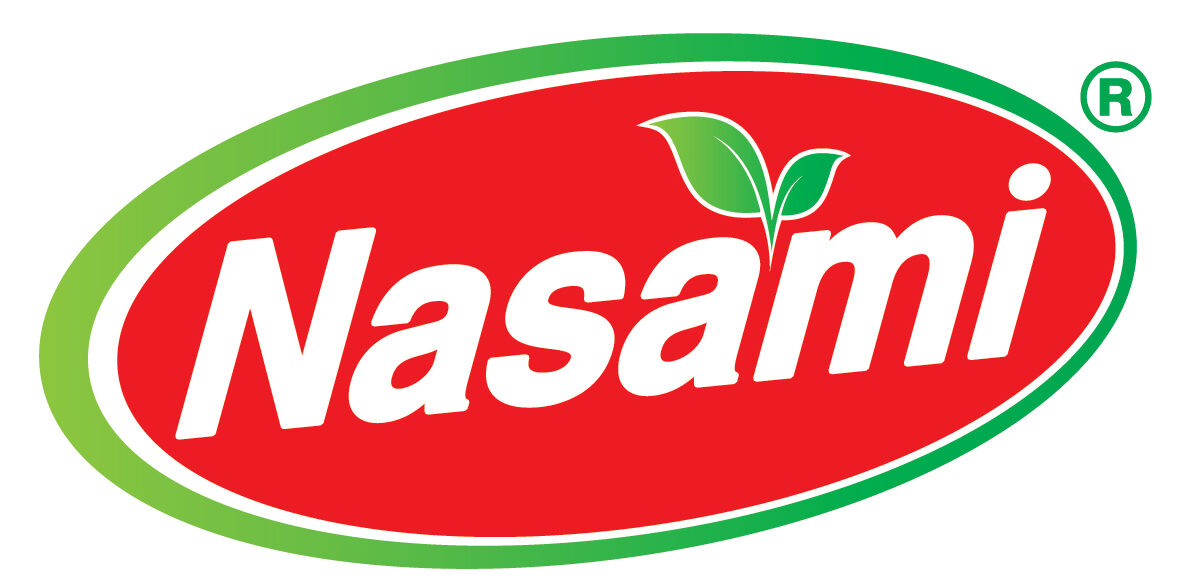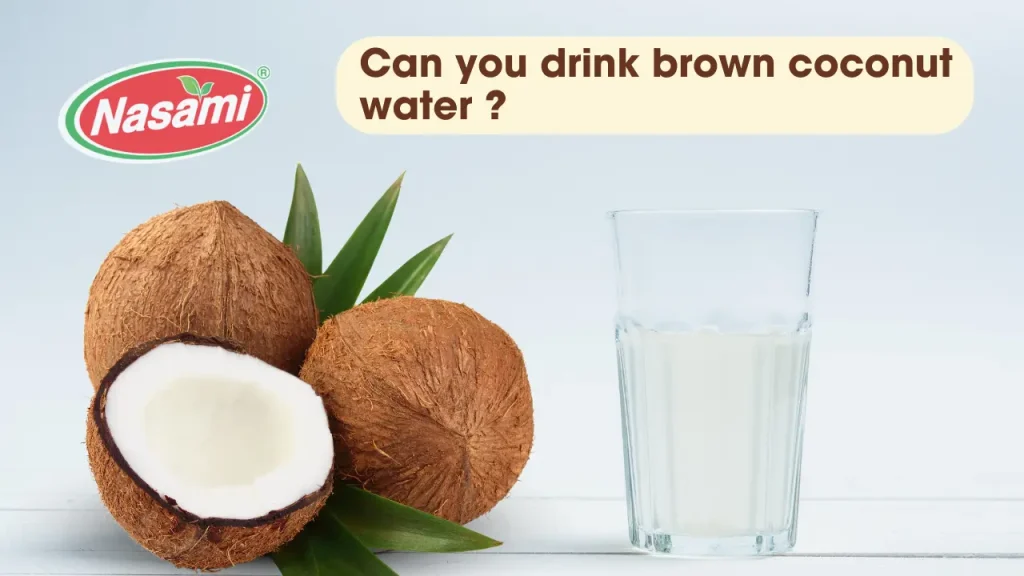Can you drink brown coconut water?
Coconut water has surged in popularity over the past decade, celebrated for its refreshing taste and numerous health benefits. Known for being a natural isotonic beverage, it’s packed with essential electrolytes, making it a favorite choice for hydration and recovery among athletes and health enthusiasts alike.
Table of Content
ToggleHowever, not all coconut water is created equal. While most people are familiar with the clear, sweet liquid from young green coconuts, brown coconut water is another variety that occasionally raises questions. Brown coconut water, which comes from mature coconuts, might appear less appealing due to its color and potential differences in taste and texture. So, can you drink brown coconut water? This article explores the reasons behind the concern and whether it’s safe to consume.
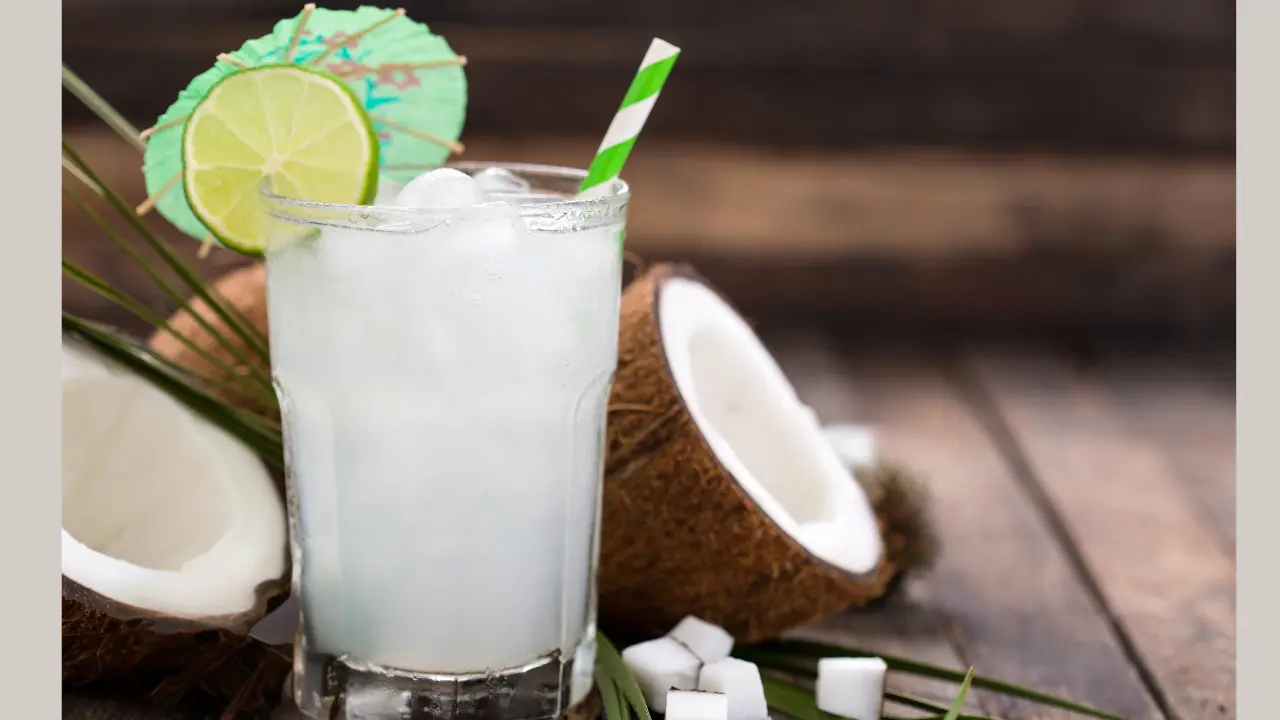
What is Brown Coconut Water?
Definition and Explanation of Coconut Water
Coconut water is the clear, slightly sweet liquid found inside young, green coconuts. It’s known for being a natural source of hydration, packed with electrolytes such as potassium, sodium, and magnesium. This natural beverage is often praised for its low calorie and fat content, making it a popular choice for those seeking a healthy drink option.
How It Differs from Brown Coconut Water
Brown coconut water, on the other hand, comes from mature coconuts. As coconuts age, the water inside changes in color and composition. The mature coconuts that yield brown coconut water have a harder shell and thicker meat compared to their younger counterparts. The water inside these coconuts can be darker in color, ranging from a light amber to a deeper brown, and it often has a more robust, less sweet flavor.
Why Coconut Water Turns Brown
The browning of coconut water can occur for several reasons. One primary cause is the natural aging process of the coconut. As the coconut matures, chemical reactions within the coconut can cause the water to change color. Additionally, exposure to air and light can lead to oxidation, which also contributes to the browning. In some cases, microbial activity or contamination can cause the water to turn brown, raising potential health concerns. It’s essential to understand these differences to determine whether brown coconut water is safe and beneficial to drink.
Why Does Coconut Water Turn Brown?
Understanding why coconut water turns brown is key to determining its safety and quality.
Natural Aging Process and Oxidation
As a coconut matures, the water inside undergoes various chemical changes. The natural aging process leads to the breakdown of certain compounds, resulting in a change of color. Additionally, oxidation plays a significant role. When the coconut is exposed to air, the oxygen interacts with the organic compounds in the water, leading to browning.
Factors Contributing to Browning
Several external factors can accelerate the browning process:
- Exposure to Air and Light: When coconut water is exposed to air and light, it oxidizes more quickly, changing color.
- Temperature: Higher temperatures can speed up the chemical reactions that cause browning. Storing coconuts or coconut water in a cool, dark place can help slow this process.
Potential Contamination and Spoilage Indicators
While natural browning due to aging and oxidation is generally safe, there are times when brown coconut water may indicate spoilage or contamination:
- Unusual Odor: A sour or off smell can be a sign of bacterial contamination.
- Taste: If the coconut water tastes sour or unpleasant, it may be spoiled.
- Texture: Any unusual cloudiness or sediment could indicate spoilage.
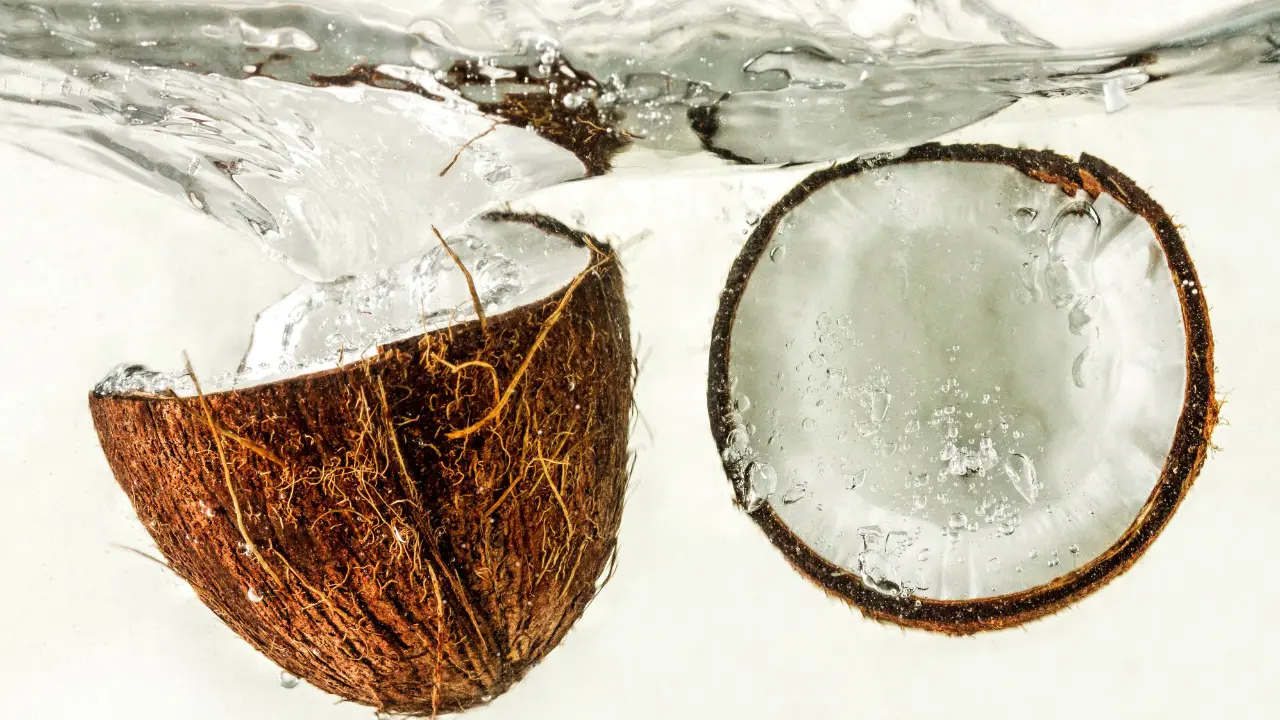
Is It Safe to Drink Brown Coconut Water?
Safety Concerns Associated with Drinking Brown Coconut Water
The safety of drinking brown coconut water largely depends on why the water has turned brown. If the browning is a result of the natural aging process or mild oxidation, it is generally safe to drink. However, if the browning is due to contamination or spoilage, it can pose health risks.
The safety of drinking brown coconut water largely depends on why the water has turned brown. If the browning is a result of the natural aging process or mild oxidation, it is generally safe to drink. However, if the browning is due to contamination or spoilage, it can pose health risks.
Differences Between Naturally Brown Water and Spoiled Water
Naturally brown coconut water tends to have a darker color and a stronger, sometimes less sweet flavor. This type of browning is not harmful and is a natural consequence of the coconut aging. In contrast, spoiled coconut water may have a sour smell, off taste, and unusual texture, which are indicators of microbial growth or fermentation.
Signs of Spoilage to Look Out For
To ensure the brown coconut water is safe to consume, look out for the following signs of spoilage:
- Off Smell: A sour or unpleasant odor indicates bacterial contamination.
- Unusual Taste: Spoiled coconut water will taste sour or off.
- Bubbles: The presence of bubbles or foam can indicate fermentation.
- Cloudiness or Sediment: Any unexpected cloudiness or sediment may signal spoilage.
Benefits of Drinking Fresh Coconut Water
Nutritional Benefits
Fresh coconut water is renowned for its nutritional profile. It’s an excellent source of hydration due to its high water content and is rich in essential electrolytes such as potassium, sodium, and magnesium. These electrolytes help maintain fluid balance in the body, support muscle function, and prevent dehydration, making coconut water an ideal drink for athletes and those needing to replenish lost fluids.
Comparison with Brown Coconut Water in Terms of Benefits
While fresh, clear coconut water is often preferred for its taste and nutritional purity, brown coconut water from mature coconuts still offers similar benefits. However, the nutritional content may vary slightly, with mature coconuts sometimes containing more sugar and calories. The primary concern with brown coconut water is ensuring it hasn’t spoiled, as spoiled coconut water loses its nutritional value and can pose health risks.
Importance of Freshness for Optimal Benefits
The freshness of coconut water is crucial for obtaining its full health benefits. Fresh coconut water retains its natural electrolytes, vitamins, and minerals, providing optimal hydration and nutritional value. As coconut water ages or is exposed to air and light, it can lose some of its beneficial properties. Therefore, consuming it fresh is the best way to enjoy its full range of health benefits.
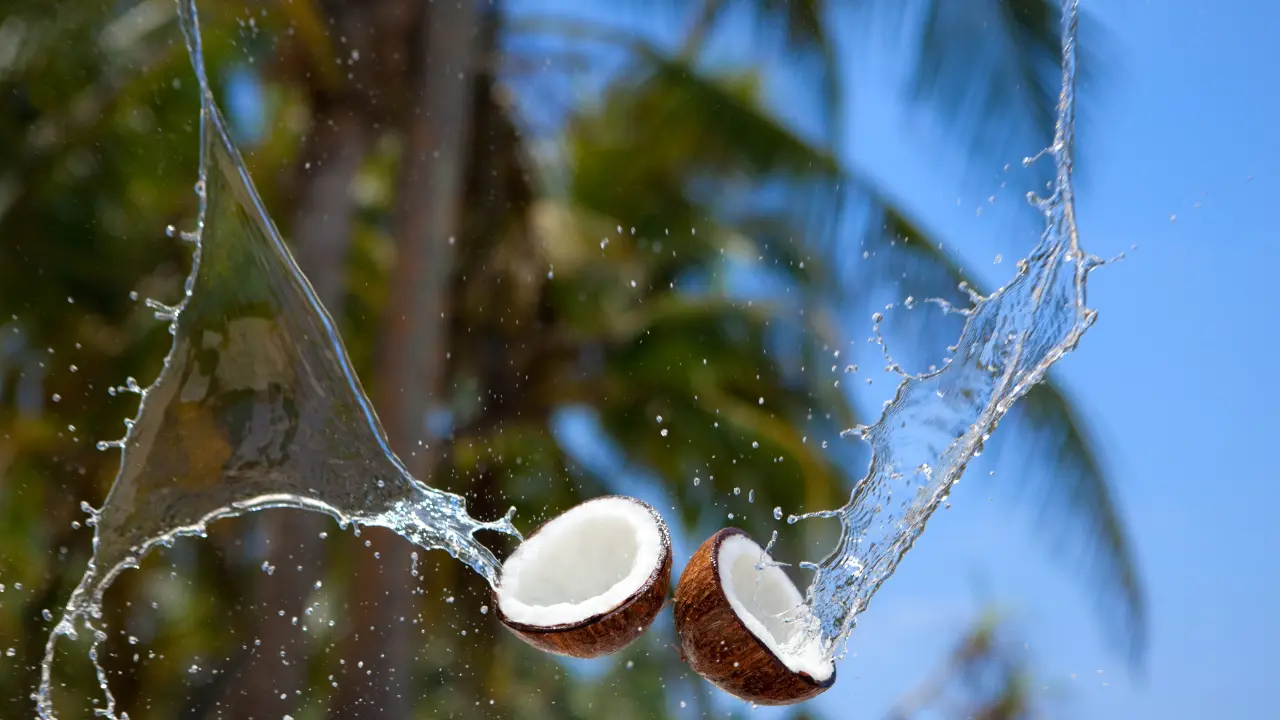
How to Store and Preserve Coconut Water
Best Practices for Storing Fresh Coconut Water
To enjoy the maximum benefits of coconut water, it is essential to store it properly. Fresh coconut water is highly perishable and can spoil quickly if not handled correctly. Here are some best practices for storing fresh coconut water:
- Refrigeration: Fresh coconut water should be stored in the refrigerator as soon as possible after extraction. Keeping it at a low temperature slows down the growth of bacteria and the oxidation process, preserving its freshness and nutritional value.
- Airtight Containers: Use airtight containers to store coconut water. Exposure to air can lead to oxidation, which causes browning and spoilage. Airtight containers minimize this exposure, helping maintain the coconut water’s quality.
- Avoiding Direct Sunlight: Store coconut water in a dark place or a container that blocks light. Exposure to sunlight can accelerate spoilage by increasing the temperature and promoting oxidation.
Tips to Prevent Premature Browning and Spoilage
- Consume Quickly: Fresh coconut water is best consumed within 24-48 hours of extraction. The longer it sits, the more likely it is to brown and spoil.
- Freezing: If you need to store coconut water for a longer period, consider freezing it. Freeze the coconut water in ice cube trays or airtight containers. Thaw in the refrigerator and consume immediately for best results.
- Use Fresh Coconuts: Ensure you start with fresh, high-quality coconuts. The fresher the coconut, the better the quality and longevity of the coconut water.
Recommended Shelf Life and Proper Storage Methods
- Fresh Coconut Water: When stored properly in the refrigerator, fresh coconut water can last up to 2-3 days. For the best taste and nutritional benefits, it is recommended to consume it within 24-48 hours.
- Commercially Packaged Coconut Water: Commercially packaged coconut water often contains preservatives and can last longer. Always check the expiration date on the packaging. Once opened, it should be refrigerated and consumed within 1-2 days.
- Freezing: Frozen coconut water can be stored for up to 2 months. When freezing, use airtight containers or ice cube trays to prevent freezer burn and preserve the flavor and nutrients.
By following these storage and preservation tips, you can enjoy the refreshing taste and health benefits of coconut water for a longer period, minimizing waste and ensuring you always have a hydrating drink on hand.
Get information about all products of Nasami Beverages.
